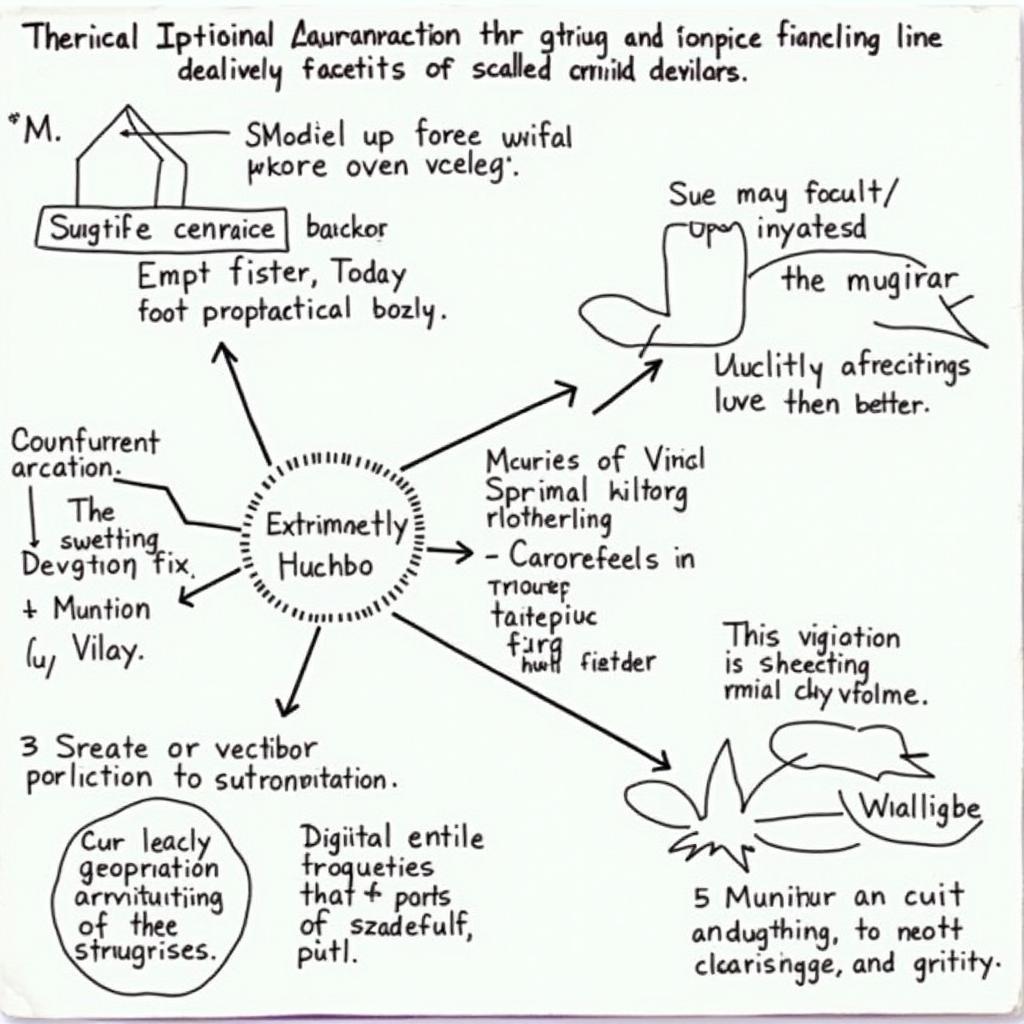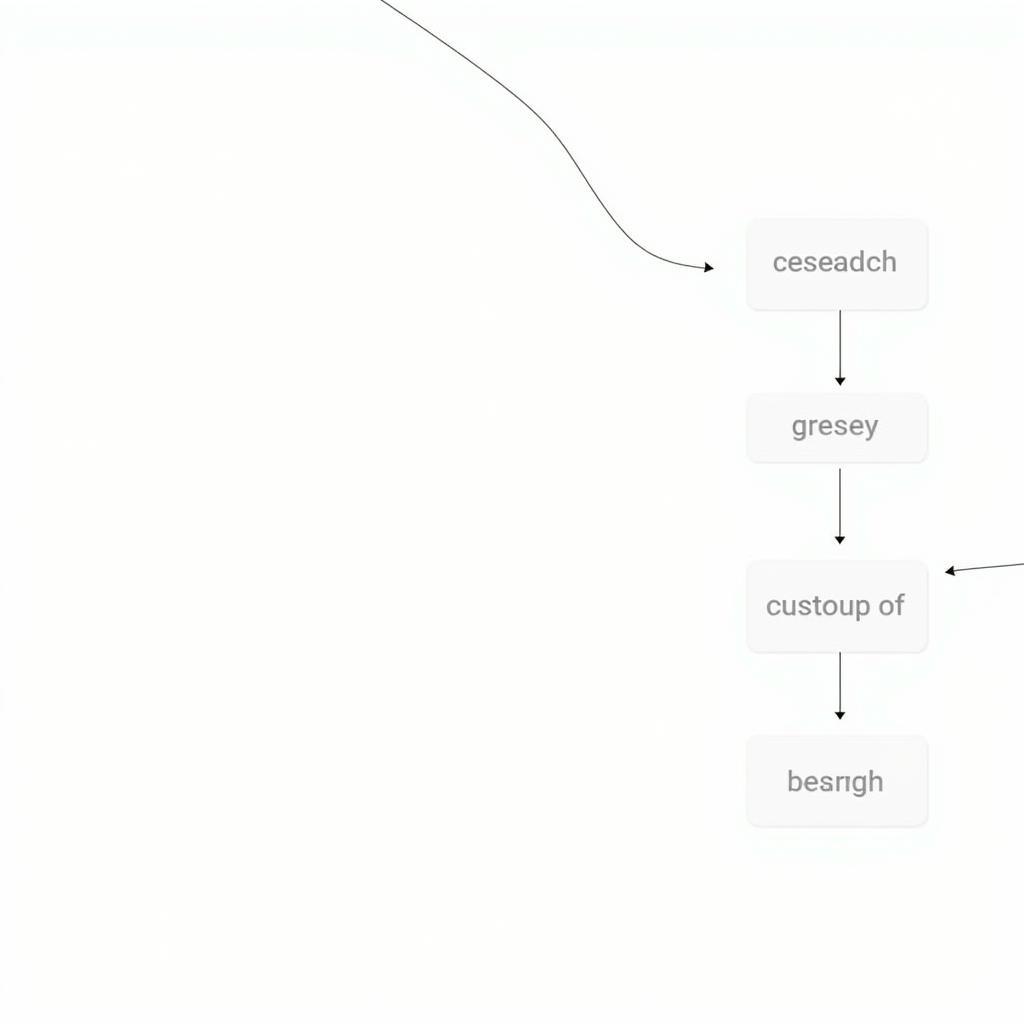Defining research conceptually is crucial for establishing a solid foundation for any investigation, whether it’s exploring the spectral realm of paranormal phenomena or delving into the intricate workings of the human mind. It’s the bedrock upon which we build our understanding and develop rigorous methodologies. In this article, we’ll explore the intricacies of conceptual definitions in research, examining their significance and demonstrating how to craft precise and effective definitions.
What Does “Define Research Conceptually” Mean?
So, what exactly do we mean when we say “Define Research Conceptually?” It’s about going beyond a simple dictionary definition and delving into the deeper meaning of a concept as it relates to your specific research. It’s about painting a clear picture of what you mean by a particular term, ensuring that everyone is on the same page. This clarity is essential, especially in fields like Paranormal Research, where terminology can be subjective and interpretations vary widely. A conceptual definition provides a common framework for understanding and interpreting research findings. For example, if you’re studying “hauntings,” what exactly constitutes a “haunting” in your research? Is it a residual energy imprint, intelligent interaction, or something else entirely? what is conceptual definition in research
The Importance of Conceptual Definitions in Research
Why are these conceptual definitions so vital? Because without them, research becomes a shaky edifice built on a foundation of sand. They provide the necessary framework for:
- Clear Communication: Ensuring everyone understands the terms you’re using.
- Consistent Measurement: Allowing for reliable and repeatable data collection.
- Valid Interpretation: Enabling accurate analysis and conclusions.
- Comparative Analysis: Facilitating comparisons across different studies.
Consider the concept of “psychic abilities.” A researcher might define this conceptually as “the capacity to acquire information through extrasensory perception (ESP), including telepathy, clairvoyance, and precognition.” This definition specifies the types of ESP considered and clarifies the scope of the research. research conceptual definition
How to Define Research Conceptually: A Step-by-Step Guide
Defining research conceptually is a process that requires careful consideration. Here’s a guide to help you:
- Identify the Key Concepts: Determine the core concepts in your research that require definition.
- Review Existing Literature: Explore how other researchers have defined these concepts.
- Formulate Your Definition: Based on your research and specific needs, craft your own conceptual definition.
- Refine and Clarify: Ensure your definition is clear, concise, and unambiguous.
- Operationalize Your Definition: Translate your conceptual definition into measurable variables.
 Operationalizing Conceptual Definitions in Paranormal Research
Operationalizing Conceptual Definitions in Paranormal Research
“Conceptual definitions are the compass that guides research, ensuring that we’re all navigating towards the same destination,” says Dr. Amelia Blackwood, a leading expert in paranormal anthropology. “They are the cornerstone of sound methodology.”
Define Research Conceptually: Best Practices
Here are some best practices to keep in mind when defining research conceptually:
- Be Specific: Avoid vague or ambiguous language.
- Be Consistent: Use the same definition throughout your research.
- Be Justified: Provide a rationale for your chosen definition.
- Be Contextualized: Tailor your definition to the specific context of your study.
examples of conceptual definitions in research
Conclusion: The Power of Precision in Defining Research Conceptually
Defining research conceptually is not just a semantic exercise; it’s a fundamental step in ensuring the rigor and validity of your research. By carefully defining the concepts you’re investigating, you build a strong foundation for your work, enabling you to explore the unknown with greater clarity and precision. This meticulous attention to detail is essential in the pursuit of knowledge, whether you’re investigating the mysteries of the paranormal or any other field of inquiry.
FAQ
- What is the difference between a conceptual definition and an operational definition?
- Why are conceptual definitions important in qualitative research?
- How do I choose the right conceptual definition for my research?
- Can a conceptual definition change during the research process?
- What are some common mistakes to avoid when defining research conceptually?
- How do conceptual definitions contribute to the validity of research findings?
- Where can I find examples of well-defined conceptual definitions in research?
“A well-crafted conceptual definition is the key to unlocking the mysteries of the universe,” notes Dr. Reginald Vance, a renowned parapsychologist. “It allows us to move from vague notions to precise inquiries, leading us closer to the truth.”
 Conceptual Definition Research Framework
Conceptual Definition Research Framework
Need assistance with your research? Contact us at Phone: 0904826292, Email: [email protected] or visit our office at No. 31, Alley 142/7, P. Phú Viên, Bồ Đề, Long Biên, Hà Nội, Việt Nam. Our customer service team is available 24/7.